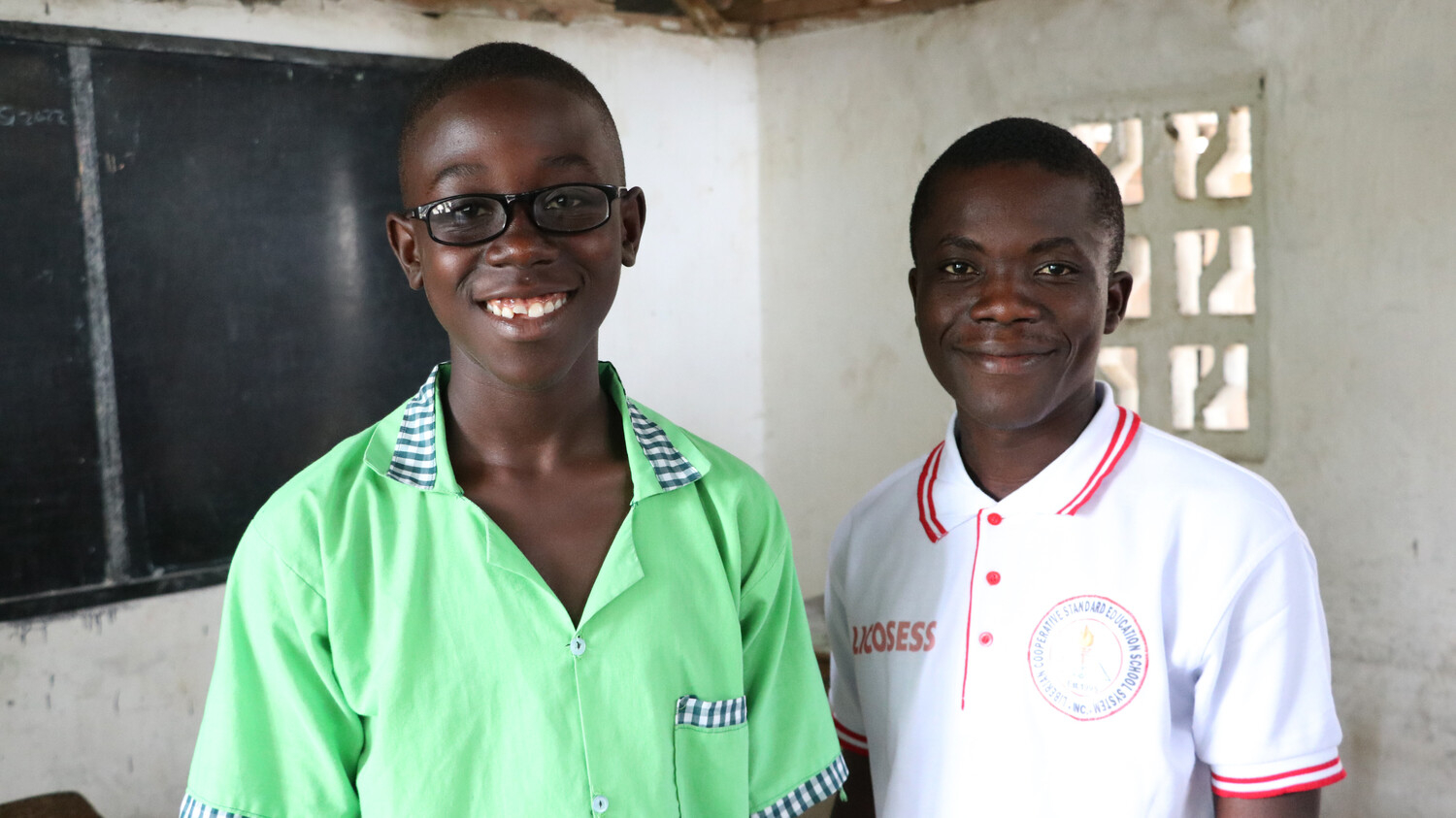

This World Sight Day, Sightsavers Eye Health Policy Advisor Fiona Lawless and Associate Technical Director for Eye Health Sumrana Yasmin explain how school-based eye health programs are essential for children to reach their potential. and build trust.
“After the glasses are given, there are changes in the students’ academic performance,” reports a Liberian school principal in a Sightsavers evaluation.
“There are children who never performed well before and were able to perform better in their lessons after receiving glasses,” they continued. “They are doing well in reading and writing and their confidence has increased.”
Twelve-year-old Arthur is a student who experienced the struggle to learn with vision problems. No matter how much he squinted, he couldn’t clearly see the board at the front of the class. His poor vision also prevented him from playing soccer with his friends, and one day he broke a tooth after a bad fall.
Arthur’s teacher, Mr Thompson, had received training through a school health project supported by Sightsavers. He referred Arthur for an eye exam, which found he had an uncorrected refractive error. A pair of glasses were prescribed and dispensed, which made a big difference.
“When I didn’t have glasses, I didn’t see clearly,” Arthur says. “Things were not good with me. Every time I took a test, I failed most of the questions. I couldn’t see the board clearly before, but now I can see it! I want to be good in the future: I want to be an engineer!”







